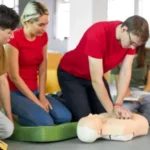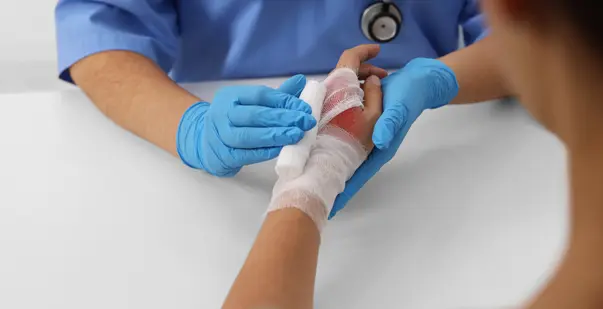Life support procedures can keep a patient alive until their body starts functioning again. A failing organ is supported by life support procedures performed by people who have taken life support certifications and courses. CPR, tube feeding, dialysis, and other life-saving techniques are included. The meaning of the term “life support” is using different types of medical interventions to sustain a patient’s life until they are revived. Up until their body can resume regular functioning, the medical team may administer life support.
4 Reasons Why You Should Take Life Support Certifications
We frequently consider what we would do if we ever found ourselves in an emergency. We could believe that we can react appropriately and assist a victim as best we can. However, when an emergency arises, we could react in ways we never expected to simply because we are unprepared. One of the key factors making basic life support training necessary is knowing to act right when it’s needed.
1. Meets the requirements of the job
Typically, if a job requires it, applicants must complete basic life support training. A healthcare service provider like a doctor, a nurse, or an emergency responder would need to be familiar with this vital information to practice their profession.
2. Teaches CPR
Even children as young as ten years old can learn cardiopulmonary resuscitation (CPR). It is highly helpful to know how to perform CPR. It is necessary to save the victim’s life when their heart stops beating during cardiac arrest.
3. Protects Lives
The most important reason behind learning CPR is that it helps in saving lives. For example, CPR. While a victim and rescuer wait for help to arrive, a witness with proper training could occasionally be the only thing keeping them alive.
4. Provides Safe Environments
You’ve probably visited a medical facility like a hospital or clinic to get medical care from a trained medical practitioner. Most of the time, you probably felt secure knowing that you were in the safest setting in case a medical emergency occurred.
9 Life Support Certifications You Should Know About
1. First Aid Courses
Basic medical fundamentals are covered in first aid training. Some of these are:
• Choking
• Burns
• Poisoning
• Wound treatment
• Bandaging
• Splinting
• CPR
• Allergies
2. Healthcare provider CPR
Healthcare provider CPR course is specifically meant for healthcare professionals. Compared to introductory first aid classes, this training is more comprehensive. Numerous advanced-level subjects are covered in the course. These include:
• Using automated external defibrillator (AED)
• Chest compressions
• Airway control
3. CPR AED Courses
This basic course was created with bystanders in mind. You learn how to spot the indications of cardiac arrest and perform CPR. Additionally, you learn the correct usage of AED.
4. CPR First Aid Combo
A mix of CPR and first aid techniques makes up this certification program. It teaches fundamental first-aid techniques. It addresses how to conduct CPR or use an AED along with recognizing the signs of cardiac arrest.
5. HIPAA
The course teaches about patient health information (PHI) security and privacy laws. It is compulsory for those working in healthcare. It is beneficial to be aware of the legal consequences of utilizing and sharing the private health information of the patients.
6. Bloodborne Pathogens
This course is especially for people who are pharmacy professionals or whose jobs expose them to blood or other potentially infectious materials and substances. These can be:
• Tattoo artists
• General workplace employees
• Housekeeping personnel, etc.
7. ACLS Certification and Recertification
This course is designed for EMTs and medical professionals. Advanced cardiopulmonary resuscitation and care are the main topics of ACLS certification. It covers topics such as:
• Managing the airway
• Managing shock
• Controlling heart rhythms
8. PALS Certification and Recertification
PALS certification is intended for medical personnel who work in the pediatric intensive care unit or emergency room. Topics covered are:
• Diagnosing and treating respiratory distress
• Shock
• Cardiac arrest
9. BLS Certification and Recertification
The Basic Life Support (BLS) certification course is intended for medical professionals and other staff who need to know how to do CPR and other fundamental cardiovascular life support techniques in a variety of scenarios.
Difference Between CPR and BLS Certification
While CPR is covered in BLS certification programs, the course is more in-depth than standard CPR instruction because BLS certification is geared toward healthcare workers. Most of the time, having a CPR certification will be sufficient to perform life-saving procedures in workplaces, educational institutions, and other safe areas. Hence, not everyone needs to obtain a BLS certification.
Difference between PALS and ACLS Certification
The treatment recipient is the main distinction between ACLS and PALS certification. While PALS helps kids, ACLS treats adults. PALS certification is for healthcare providers who treat pediatric patients. ACLS is a critical intervention for handling adult cardiac arrest or any other heart related problems. ACLS certification is for healthcare professionals dealing with adult cardiac emergencies.
Conclusion
A life support certification might be very helpful. For healthcare personnel, having a life support certification is frequently a prerequisite. However, they are also helpful for laypeople in case they witness a choking, drowning, or cardiac emergency.













